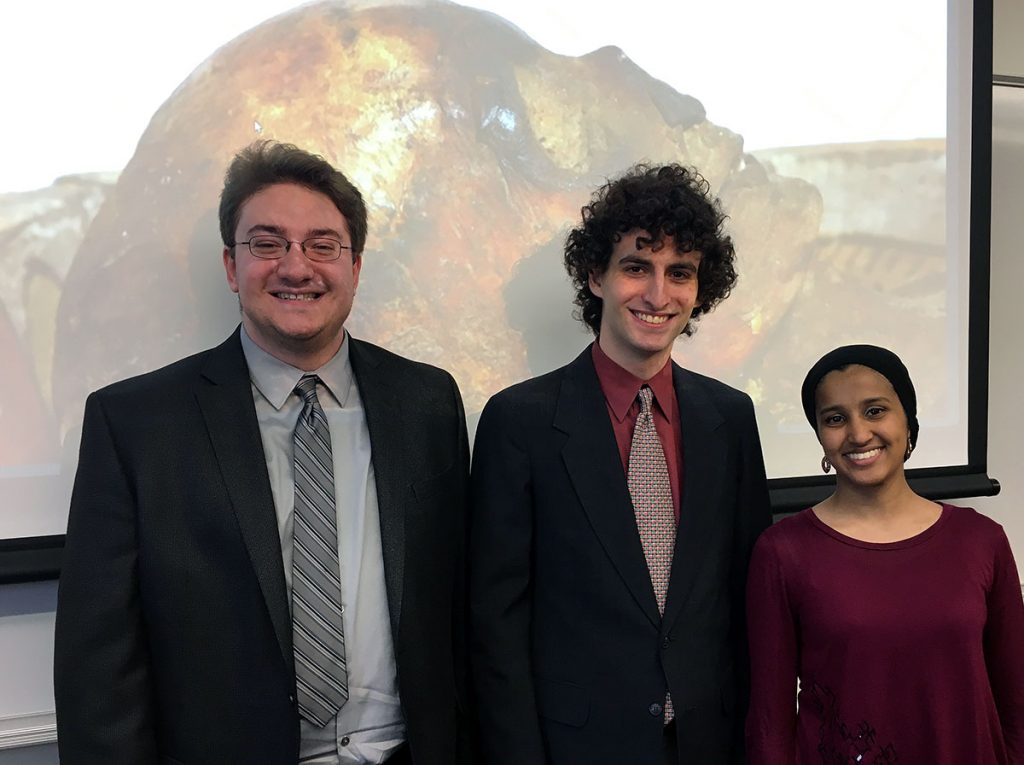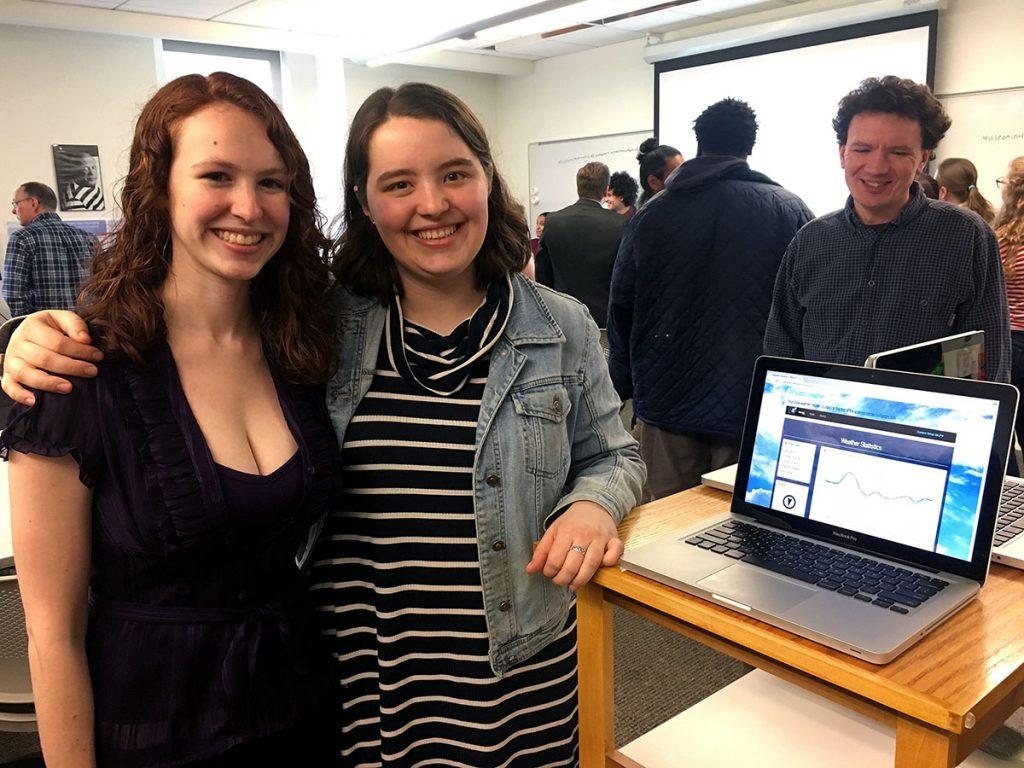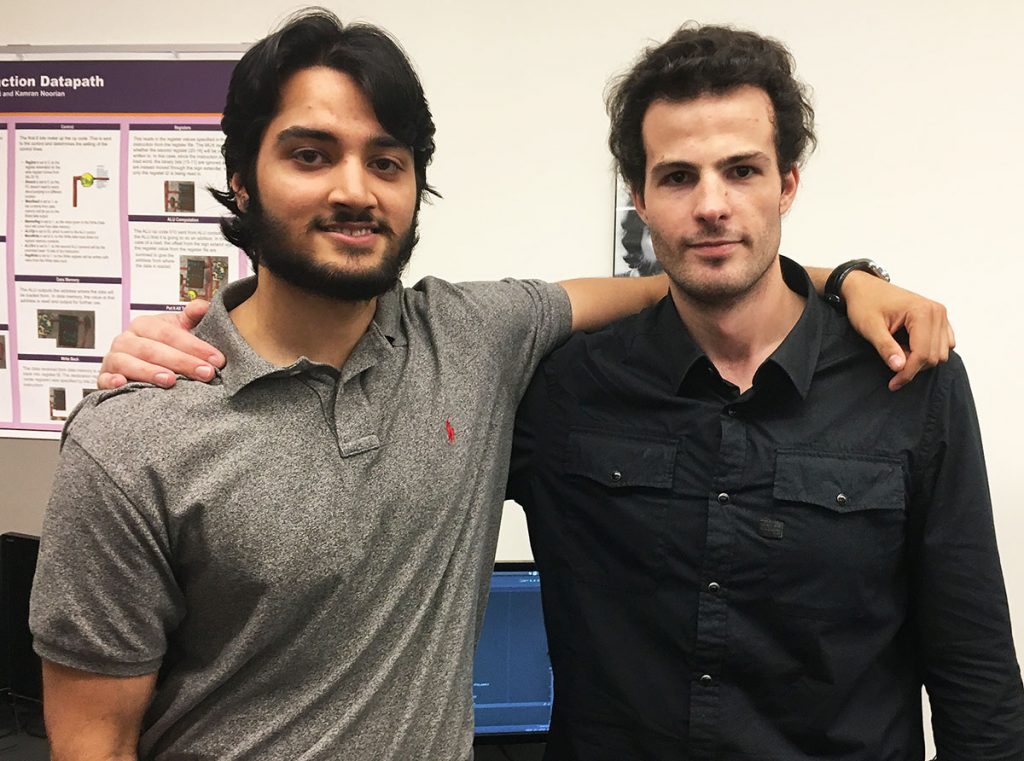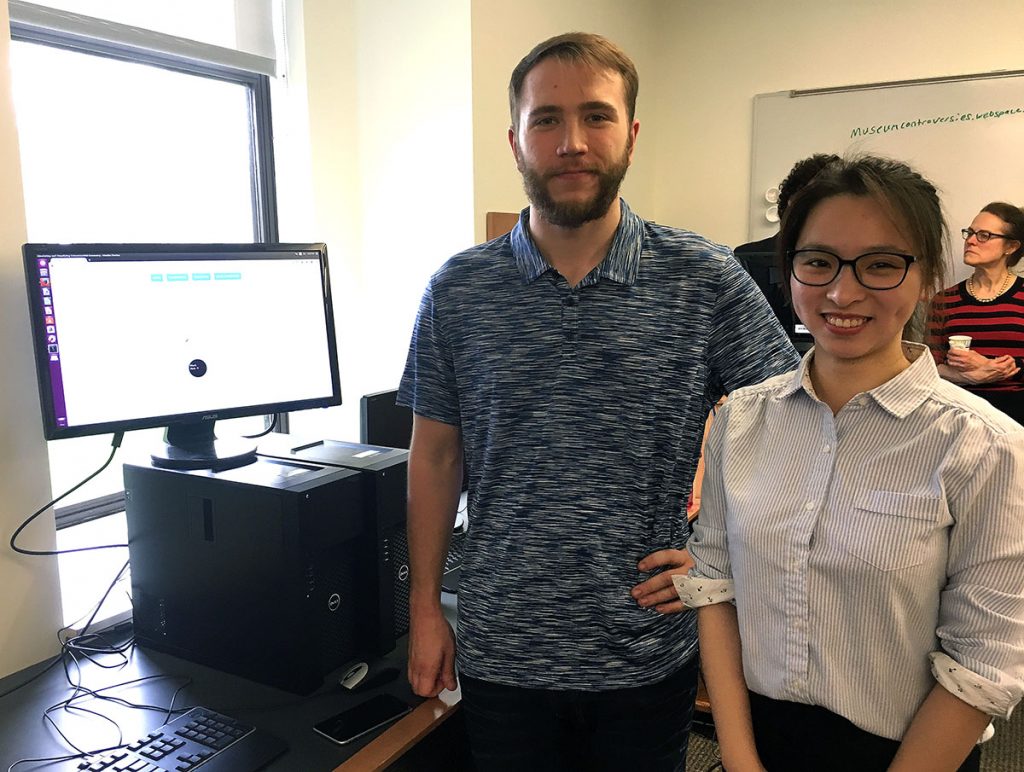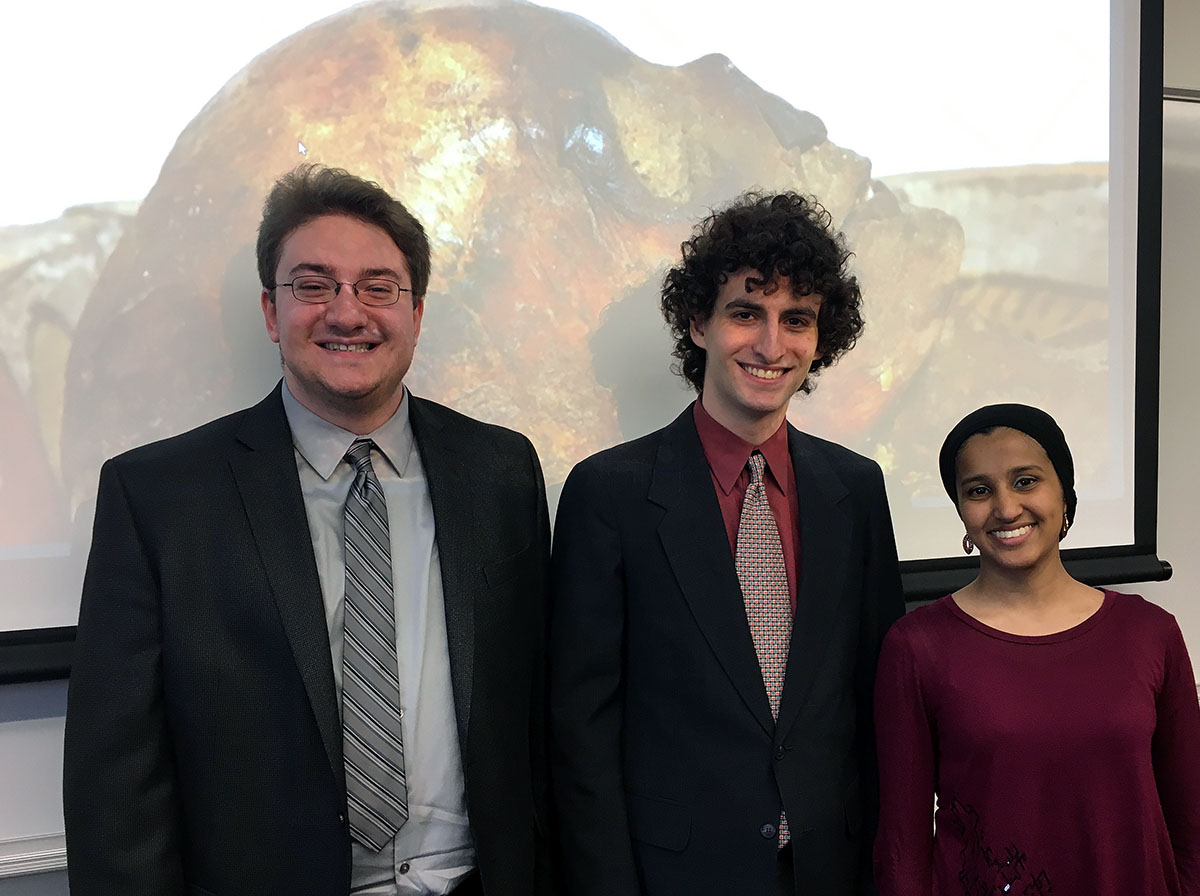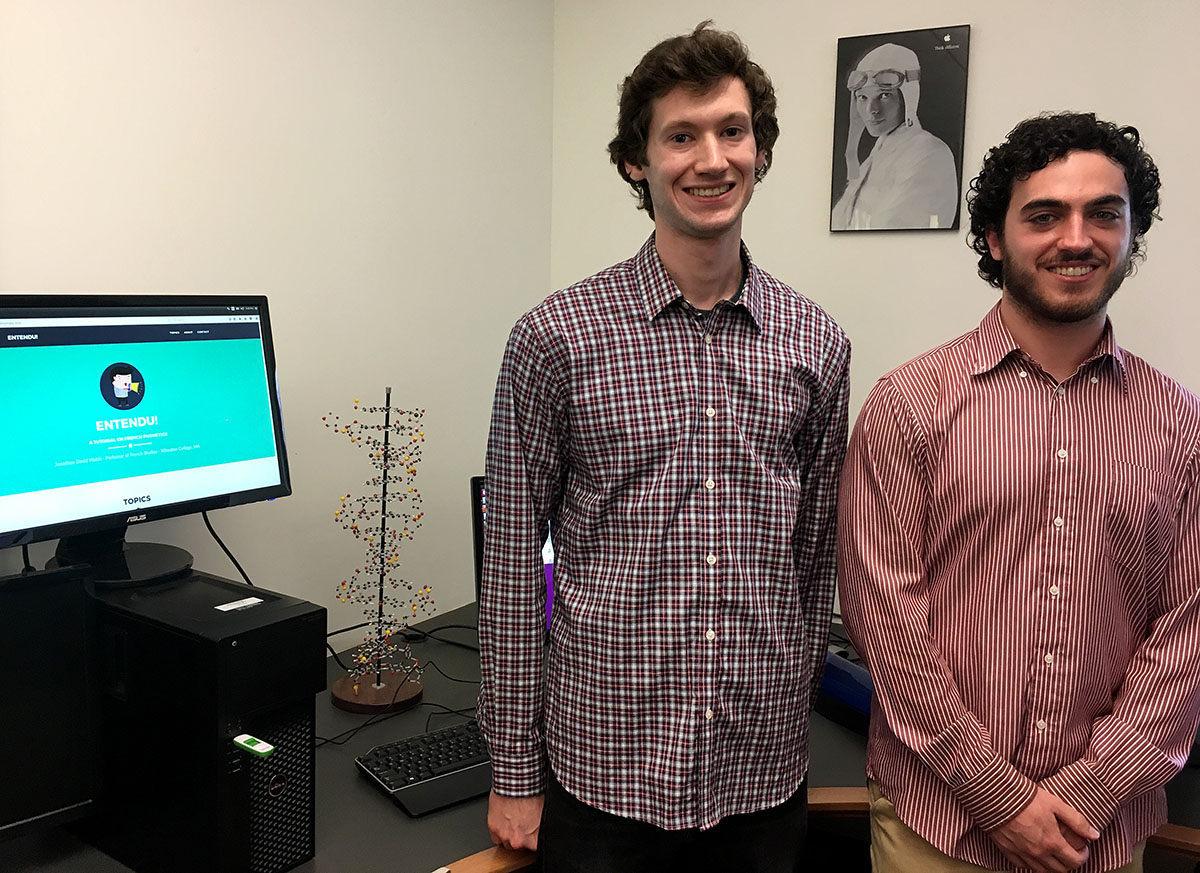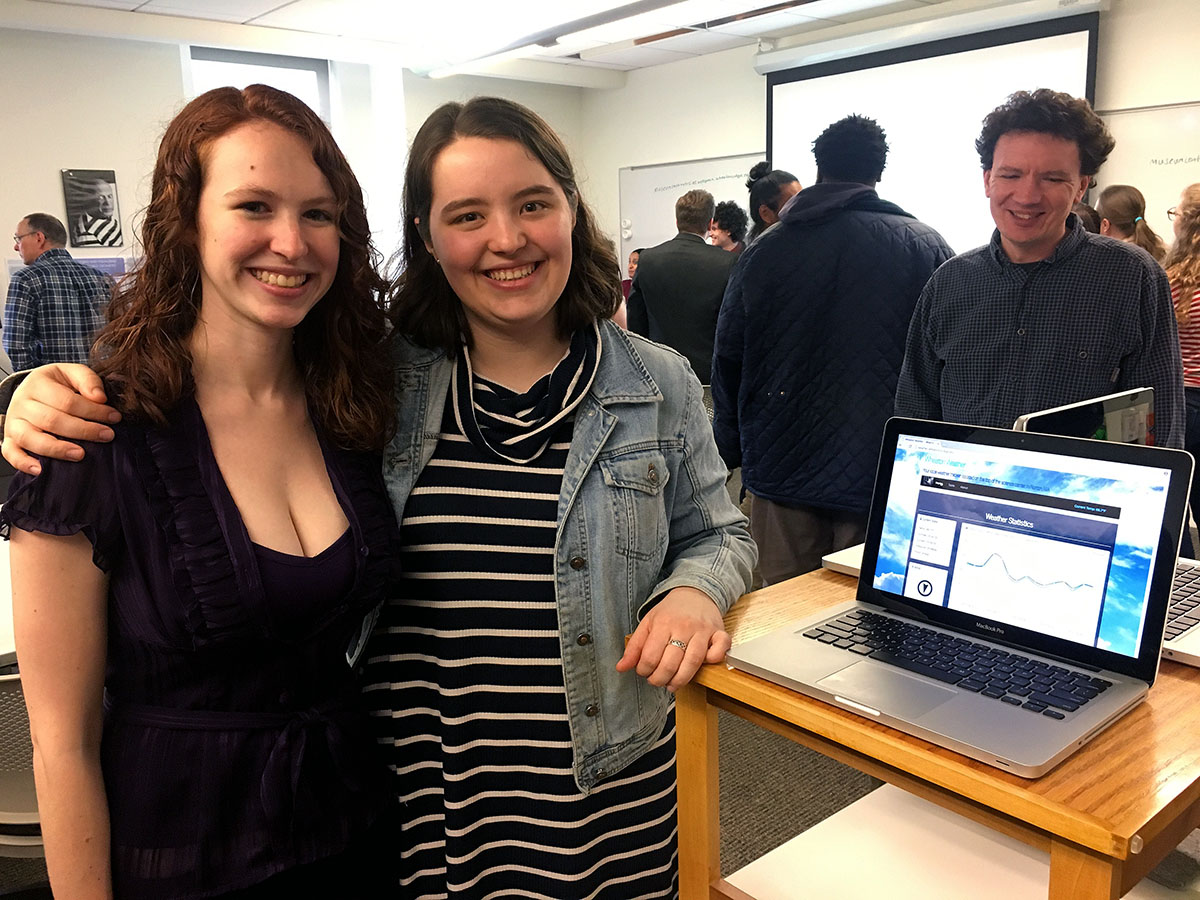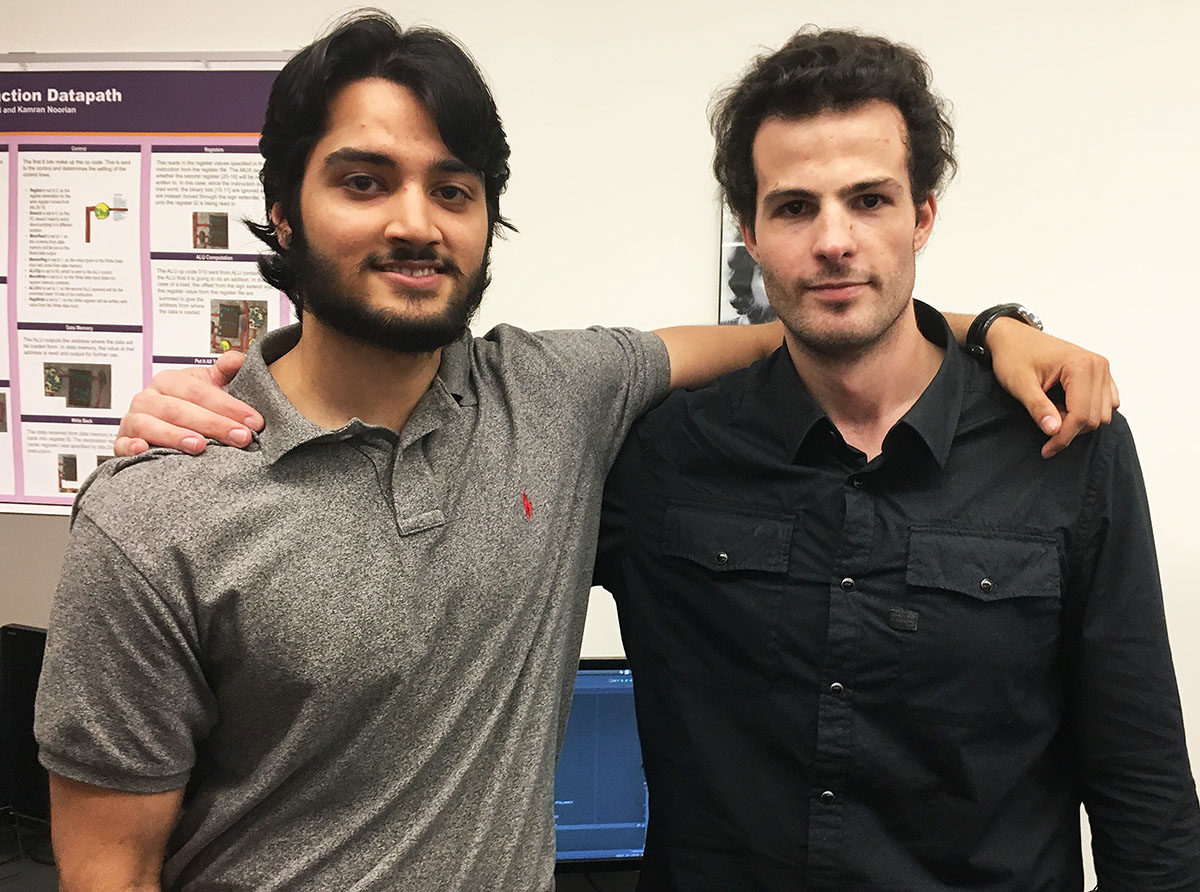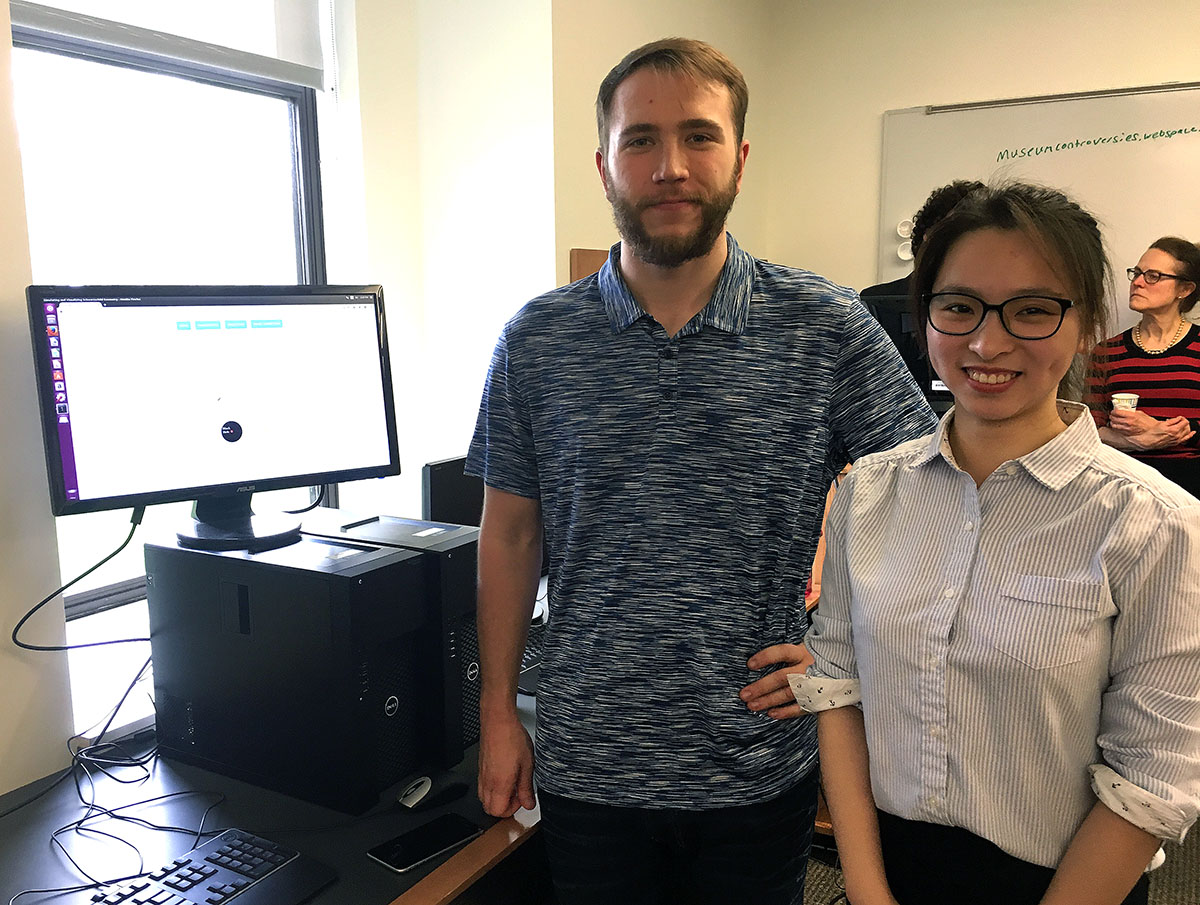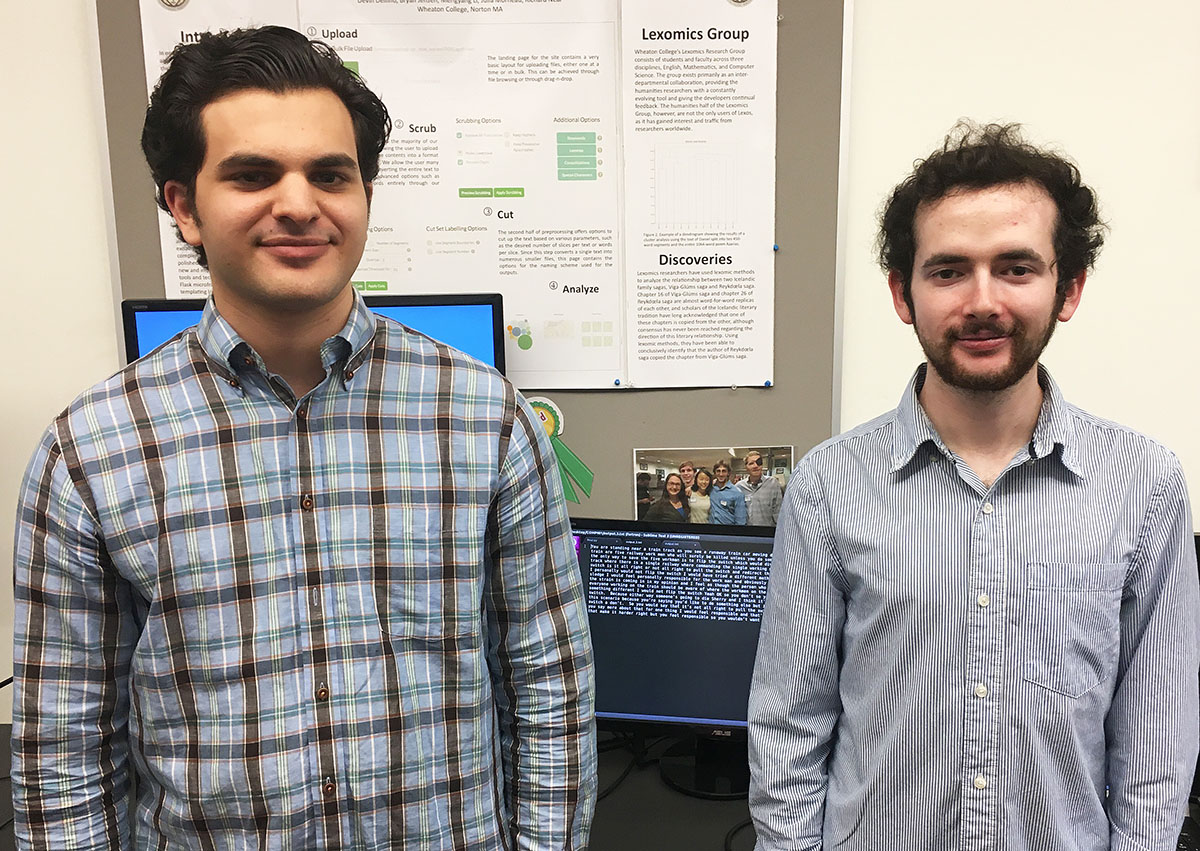Real-world applications
After four years at Wheaton, senior computer science majors have gained numerous skills that will help them in their future careers. But the lesson they learned in one of their final classes might be the most important yet: What to do when you don’t know what to do.
Divided into six groups, the 13 students in Professor of Computer Science Mark LeBlanc’s senior seminar chose a faculty client and developed a product to aid that person in their research and teaching. For many, this meant delving into unfamiliar territory—from French phonetics or astrophysics to developing their first websites.
Yiqing Cao ’17 worked with Caleb Wastler ’17 to build a web application that simulates the behavior of light particles near a black hole, for Assistant Professor of Physics and Astronomy Dipankar Maitra to use as a teaching tool. Along with using various computer languages, the pair had to develop an equation to compute the trajectory of a photon.
“This project had two parts—there was something I knew because it was in my field, but there was something else I didn’t know,” Cao said. “It was a good experience, because I’m sure I will encounter that a lot in the future.”
Nathan Morse ’17 and Austin O’Malley ’17 developed a web app, Entendu, that will help Professor of French Jonathan Walsh teach French phonetics. The site features a series of interactive lessons, with audio files and graphics that demonstrate how the sounds should be produced, and a set of randomly generated quizzes that test students on what they’ve learned.
“Professor Walsh asked, ‘Can you do this?’ and I was thinking, ‘I don’t know how, but I’ll figure it out,’ and we did,” Morse said. “You know you can do anything once you reach a certain level.”
O’Malley put it another way:
“It’s bad to be comfortable with where you’re at. Putting yourself in an uncomfortable spot once in awhile and learning something new is definitely good for you,” he said.
In addition to showing Wheaton faculty how they can benefit from the resources available in computer science, the senior seminar project aimed to get students thinking about how classroom assignments translate into careers, LeBlanc said.
“Our whole mission is to try to get them to stop thinking about this as homework. This is not homework. This is life. You’re going to be at work doing this,” LeBlanc said. “From day one they needed their resumes on LinkedIn. I interviewed them. ”
Jesse Aronson ’17 and Sam Steinfeld ’17 developed a web app, Audioscript, that will help Associate Professor of Psychology Matthew Gingo with his research on the role lying plays in child development. Instead of having research assistants transcribe the many interviews that he conducts, Gingo can upload audio files to the web-based app, which will transcribe them as well as scan the text for keywords.
Both students said the project helped them understand the value of communication in their field.
“It’s important to meet with your client regularly to make sure what you’re doing is on the right track. You don’t want to get too far ahead and find out you’re doing something they may not need,” Steinfeld said.
Adnan Hassan ’17 and Alvaro de Landeluce ’17 also developed a program to help a faculty member more quickly process text. Assistant Professor of Business and Management Nancy Scott asked the pair to build an app that could scan letters to shareholders and other documents to determine a company’s organizational hardiness—its capacity for bouncing back from difficult circumstances, such as product recalls and litigation. The app also can pull in thousands of tweets on Twitter, looking for specific keywords and phrases, and analyzes all the text to provide a score.
Scott said the program will save serious time.
“As consultants to my project, the students were professional, personable, hard-working and all around fantastic. They listened to my needs and created a final product that surpassed my expectations, including an instruction manual,” she said. “They also exhibited forethought and delivered directions and functionalities that make it where I can work the program myself.”
Technical writing, such as creating an instruction manual, was an important part of the project, LeBlanc said.
“Everybody came in at a different place on their writing, and we tried to move everybody forward,” he said.
For their project, Katie Merin ’17 and Kristina Reddy ’17 worked with Associate Professor of Chemistry and Geology Matt Evans to develop a web app that could record and organize data from the Wheaton Weather Station, located on the roof of the Mars Center for Science and Technology. The station collects data on daily temperatures, precipitation, humidity, wind speed and direction and incoming solar radiation, and supports environmental science research and teaching.
“The station reports data essentially continually, and we upload some portion of it to Weather Underground, which reports it as part of their network of stations. But that means that there is a tremendous amount of data being created but only partially archived,” Evans explained. “For long-term ecological or environmental research projects, it is helpful to have long-term climate records, and we needed a way to both archive the data and to make that data reasonably accessible to those who need it.”
Evans said he really enjoyed working with the computer science majors.
“From the start, both students were excited, responsive, responsible and always anxious to show me the progress they had made. They were very open to suggestions I made, and came up with some great ideas, too,” he said.
Kamran Noorian ’17, Alec Horwitz ’17 and Muneeba Syed ’17 worked with students in Professor Leah Niederstadt’s art history senior seminar to develop a website where they could showcase their final projects. None of the three had made a website before, so the project offered that challenge, as well as a few others.
The website went through several iterations, as the art history students pulled together research on museum controversies. Also, the two classes’ deadlines did not line up, so the project required a lot of flexibility.
“It was really valuable to have to figure out how to work with very different styles and also having clients who are going to have changing ideas, and being able to adapt to that,” Syed said. “It also showed us the importance of self-teaching skills, because there are things you might not already know how to do, and you have to figure them out to get a product for your client.”
Several of the projects are now available on GitHub, where people can use, adapt and expand on the Wheaton students’ work.

